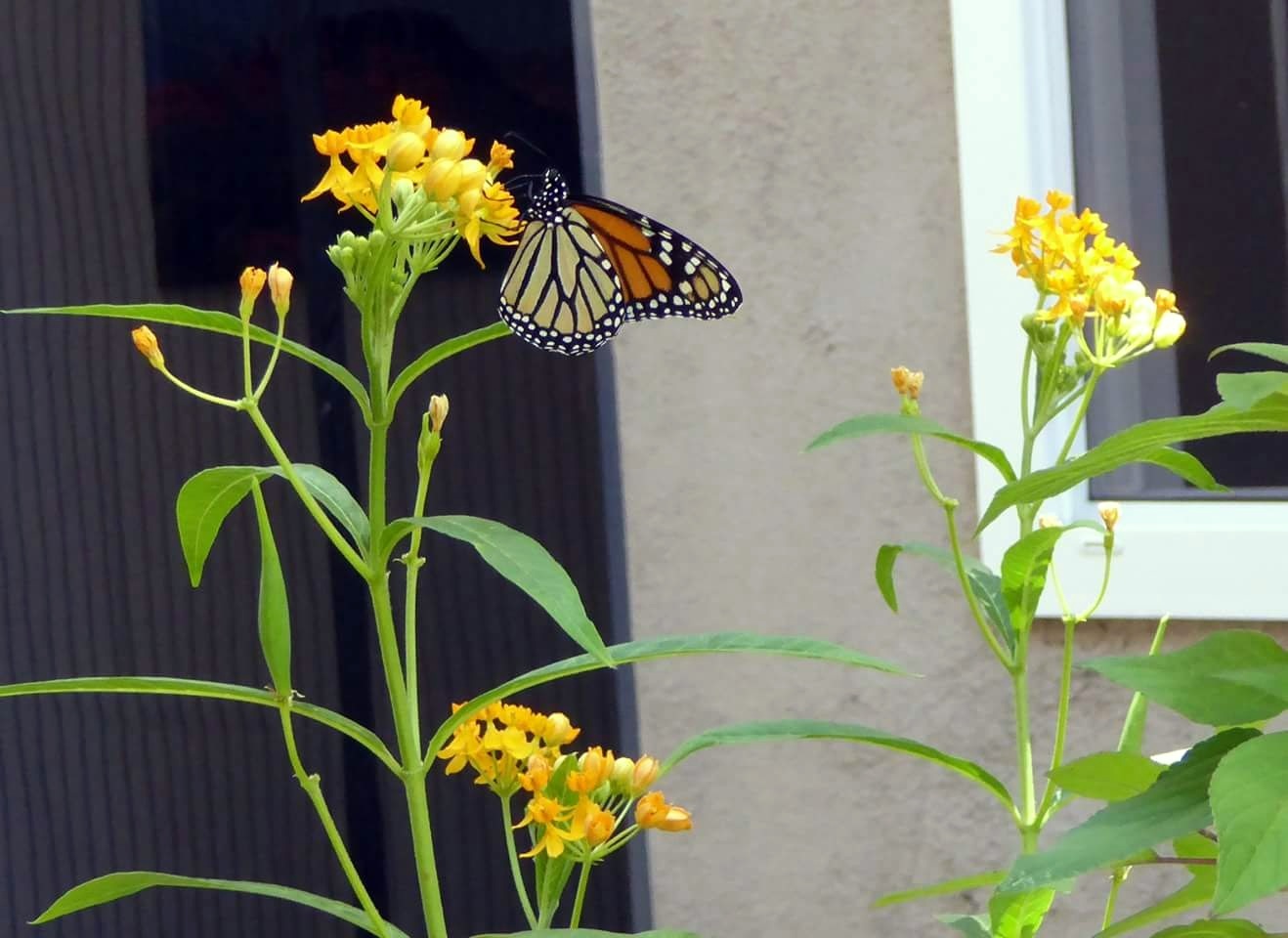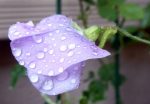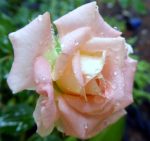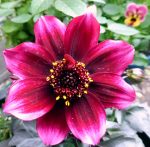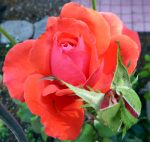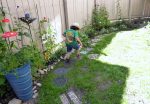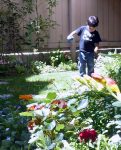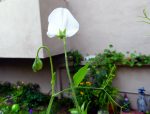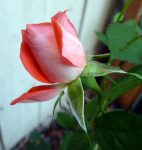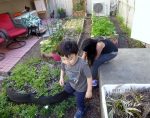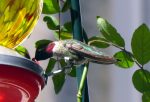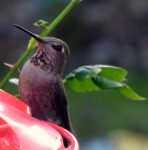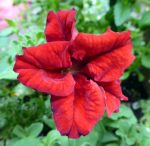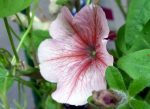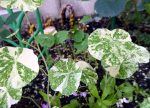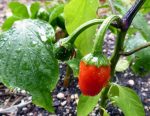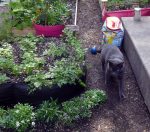“Gardening simply does not allow one to be mentally old, because too many hopes and dreams are yet to be realized.”
~ Allan Armitage
As if you need me to tell you that gardening’s good for you, good for us!
Couple of weeks ago, my friend Annie and I built a little garden for her granddaughter Lola. Annie lives in the San Fernando Valley. It took us two days! We joked about marketing our “business” as Slow Grannies Gardening!
It was heavenly!
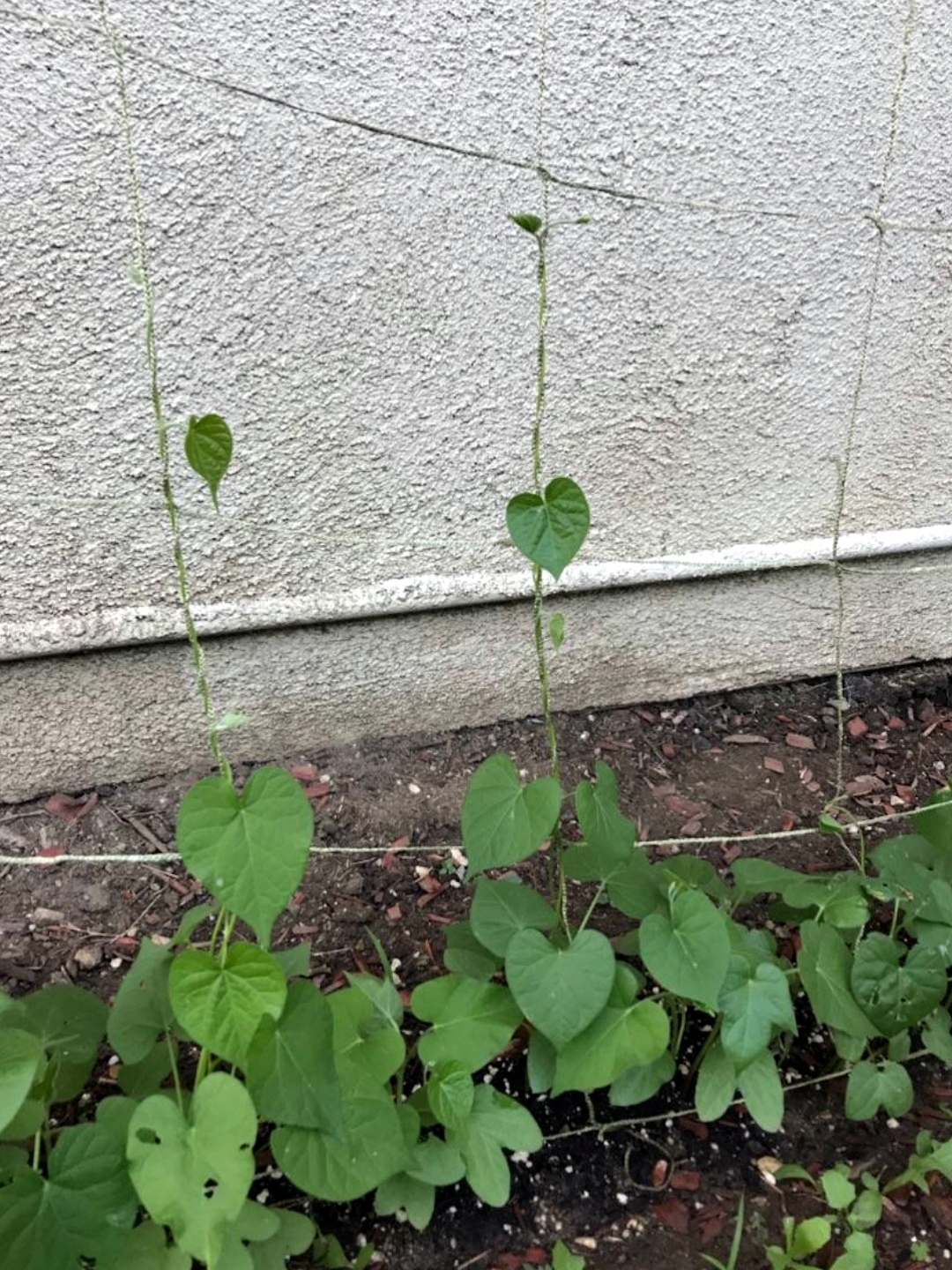
Anne & I love the little heart-shaped leaves as they start to twine & twirl up the trellis…

Who knew that gardening is therapeutic? Everyone! For a long time.
6 Unexpected Health Benefits of Gardening lists many of the wonderful ways:
- Stress-relief and self-esteem
- Heart health and stroke risk
- Hand strength and dexterity
- Brain health and Alzheimer’s risk
Researchers found daily gardening to represent the single biggest risk reduction for dementia, reducing incidence by 36%. Another study estimated the risk reduction at 47%! Why does gardening make such a difference? Alzheimer’s is a mysterious disease, and the factors influencing its incidence and progression remain poorly understood. However gardening involves so many of our critical functions, including strength, endurance, dexterity, learning, problem solving, and sensory awareness, that its benefits are likely to represent a synthesis of various aspects.
- Immune regulation *
- Depression and mental health
Plenty of your friends and neighbors have probably mentioned what a “lift” they get from a morning’s sweat amongst the lettuces and radishes. To add professional legitimacy to anecdotal claims, the growing field of “horticultural therapy” is giving proven results for patients with depression and other mental illnesses. The benefits appear to spring from a combination of physical activity, awareness of natural surroundings, cognitive stimulation and the satisfaction of the work. To build the therapeutic properties of your own garden, aim for a combination of food-producing, scented, and flowering plants to nourish all the senses. Add a comfortable seat so you can continue to bask in the garden while you rest from your labors. Letting your body get a little hot and sweaty might also have hidden benefits: as devotees of hot baths and saunas can attest, elevated body temperatures are also correlated with increased feelings of well-being. Don’t forget to drink plenty of water and know your limits.
Read the whole article; it’s truly delightful!
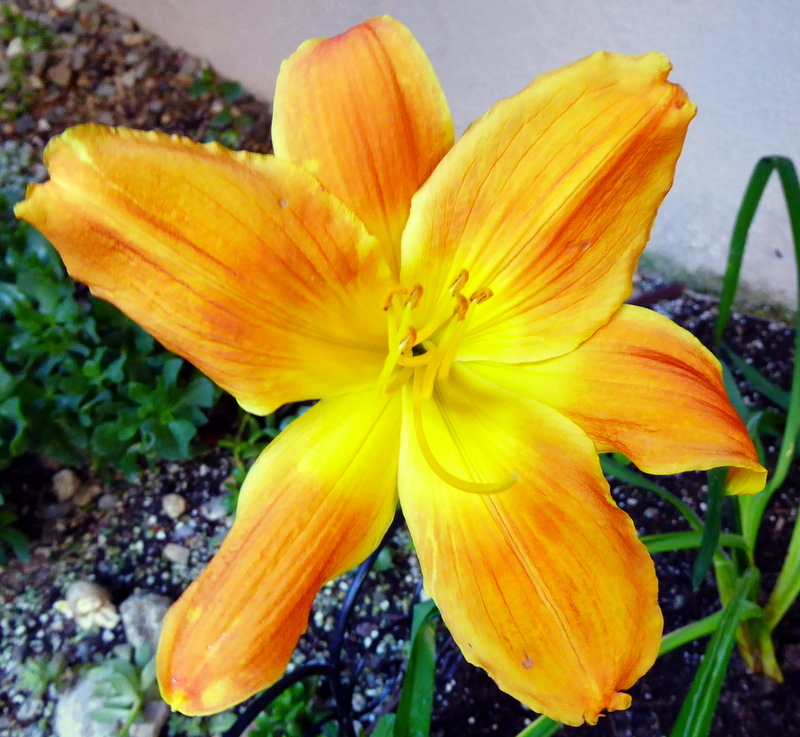
“I dig the daylily because it is forgiving, unrelenting, and breathtakingly brief.”
~ Nikki Schmith
Petal Power: Why Is Gardening So Good For Our Mental Health? in Psychology Today explains the science behind the benefits:
- Looking after plants gives us a sense of responsibility.
- Gardening allows us all to be nurturers.
- Gardening keeps us connected to other living things.
It doesn’t matter if we are seven or seventy, male, female or transgender, gardening underlines that we are all nurturers. Horticulture is a great equalizer: plants don’t give a fig who is tending them and for those with mental health problems to be able to contribute to such a transformative activity can help boost self-esteem.
- Gardening helps us relax and let go.
- Working in nature releases happy hormones.
- Being amongst plants and flowers reminds us to live in the present moment.
- Gardening reminds us of the cycle of life, and thus come to terms with that most universal of anxieties: death.
- Some aspects of gardening allow us to vent anger and aggression…
- …whilst others allow us to feel in control.
- Last but not least, gardening is easy.
Read this one too! It’s worth it.
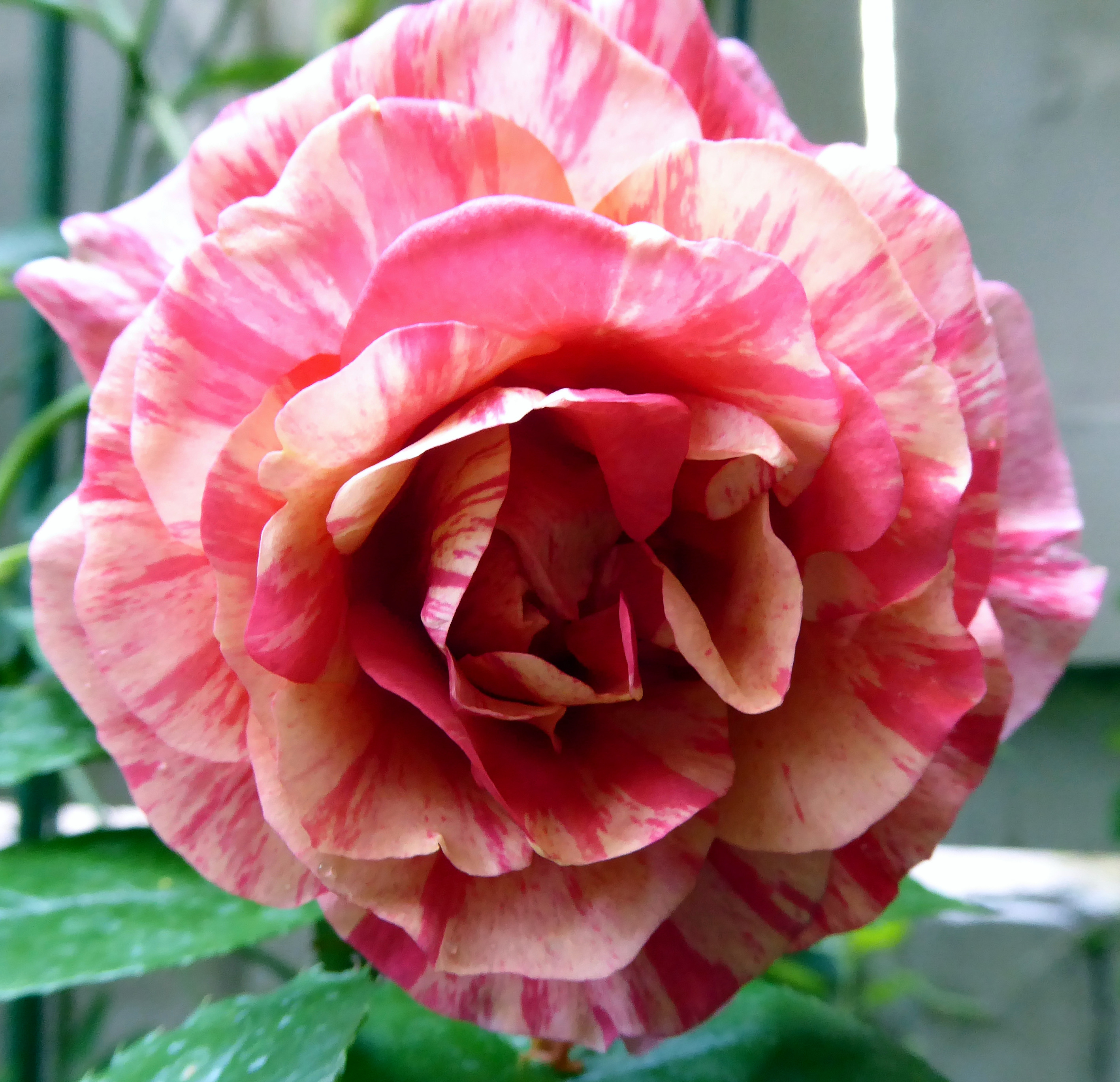
“Everything that slows us down and forces patience, everything that sets us back into the slow circles of nature, is a help. Gardening is an instrument of grace.”
~ May Sarton
Rosa ‘Frida Kahlo’
Why Gardening Makes You Happy and Cures Depression explains the two gardening “highs”:
Getting down and dirty is the best ‘upper’ – Serotonin
Getting your hands dirty in the garden can increase your serotonin levels – contact with soil and a specific soil bacteria, Mycobacterium vaccae, triggers the release of serotonin in our brain according to research. Serotonin is a happy chemical, a natural anti-depressant and strengthens the immune system. Lack of serotonin in the brain causes depression.
Harvest ‘High’ – Dopamine
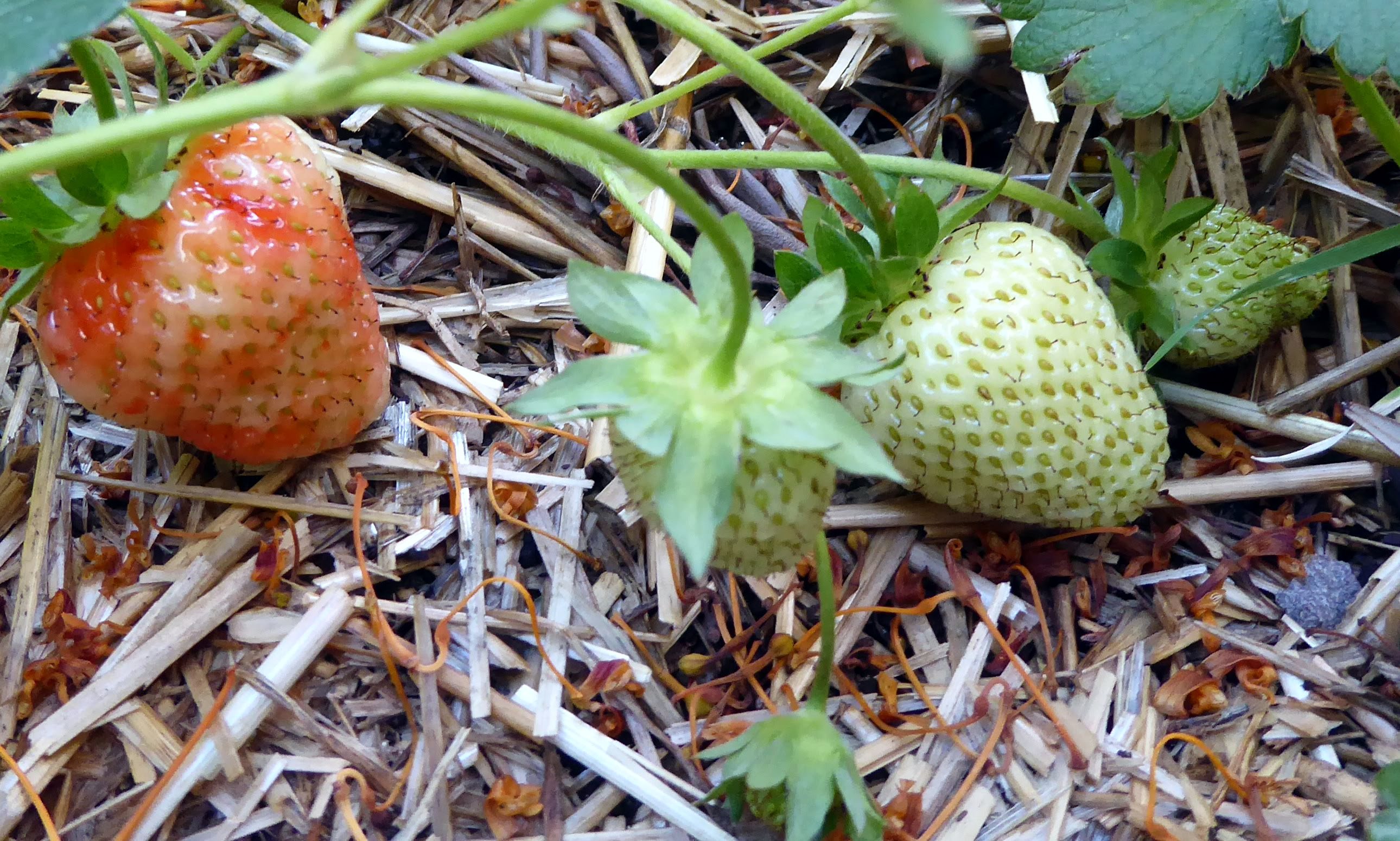
Another interesting bit of research relates to the release of dopamine in the brain when we harvest products from the garden. The researchers hypothesise that this response evolved over nearly 200,000 years of hunter gathering, that when food was found (gathered or hunted) a flush of dopamine released in the reward centre of brain triggered a state of bliss or mild euphoria. The dopamine release can be triggered by sight (seeing a fruit or berry) and smell as well as by the action of actually plucking the fruit.
Strengthening the Case for Organic ~ Glyphosate residues deplete your Serotonin and Dopamine levels
Of course, for all of the above to work effectively and maintain those happy levels of serotonin and dopamine, there’s another prerequisite according to another interesting bit of research I found. It appears it will all work much better with organic soil and crops that haven’t been contaminated with Roundup or Glyphosate-based herbicides. This proviso also extends to what you eat, so ideally you’ll avoid consuming non-organic foods that have been grown in farmland using glyphosates.
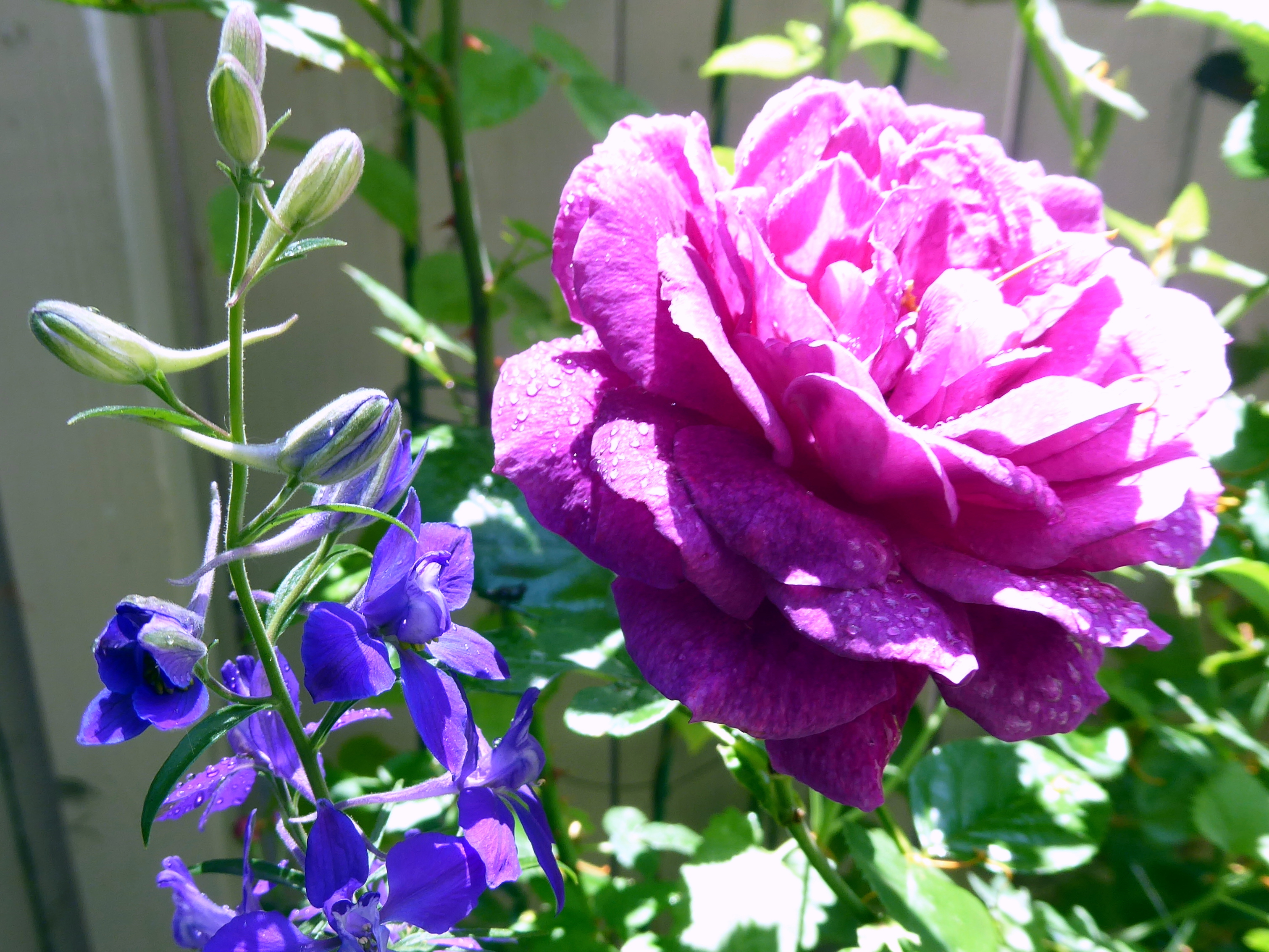
- “I breathe in…
the fragrance
of love, and moist sand
the one
his roses left
on both my hands
I just keep on breathing
every moment
as much as I can
preserving it, in my body
for the day
it can’t.”- ~ Sanober Khan
*If you’re wondering about the whole dirt, microbes, immune system thing, Dirt has a microbiome, and it may double as an antidepressant offers a thorough, understandable explanation:
There’s now pretty good evidence to draw at least an outline of a conclusion: Breathing in, playing in, and digging in dirt may be good for your health. Our modern, sterilized life in sealed-off office buildings and homes are likely not. Researchers have already found clear evidence that childhood exposure to outdoor microbes is linked to a more robust immune system; for example, Bavarian farm children who spent time in family animal stables and drank farm milk had drastically lower rates of asthma and allergies throughout their lives than their neighbors who did not.
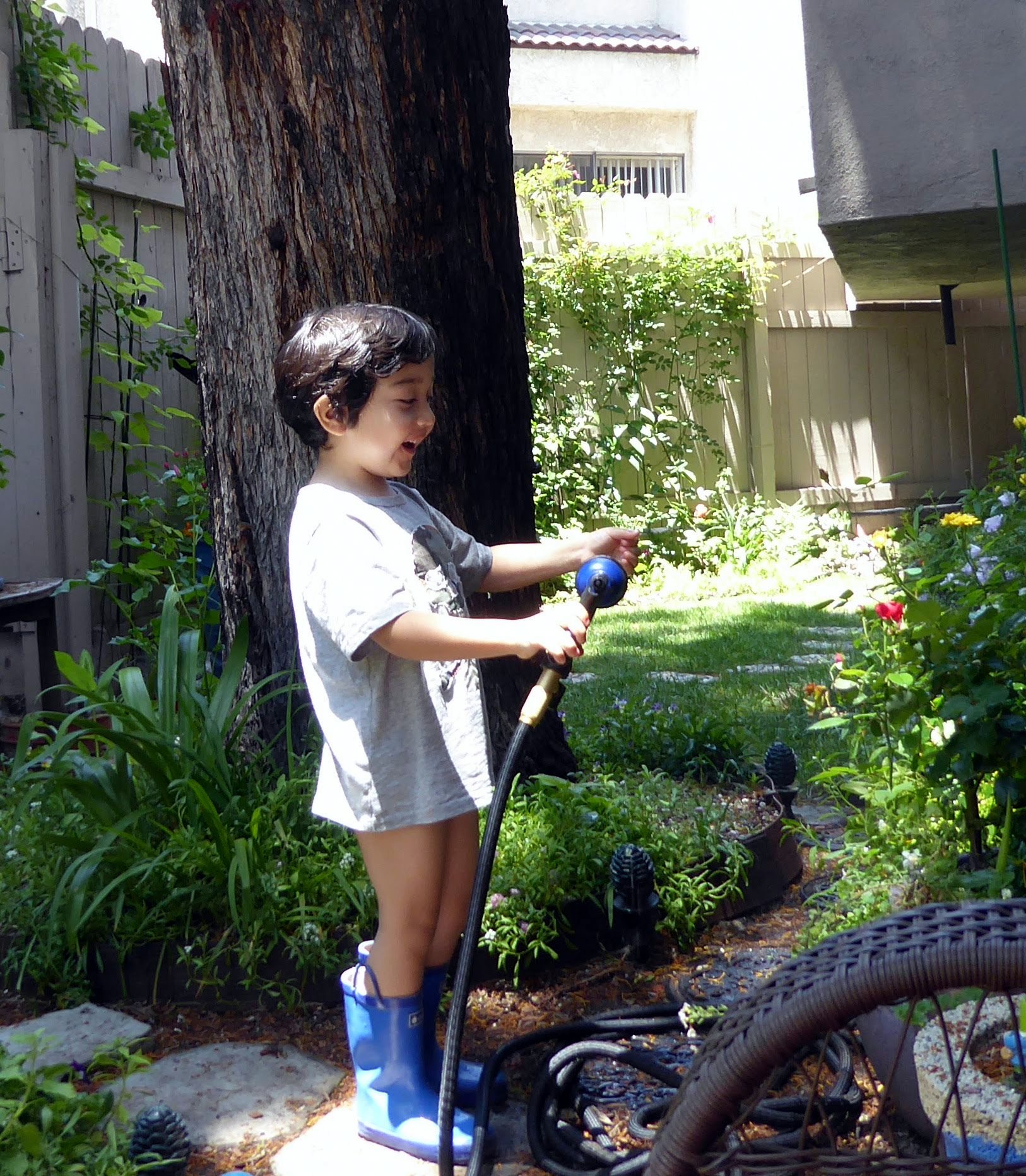
“Gardening is more than a hobby; it’s a scientifically proven anti-depressant. No wonder you like to dig in the dirt!”
The writing here in Vegetable Gardening as Therapy is fun and funny; the information is reliable and useful:
*Gardening Gets Us Out of Our Heads.
*Gardening is Exercise.
*“Nature Calms Us.”
That doesn’t happen in nature. You’re rendered … decisionless. When’s the last time you went on a walk in the forest or a field and decided it needed a little rearranging. Maybe a row of Billy bookcases. It isn’t an option so you don’t even think about it. In nature you completely give up control. And the need to control things is what causes a LOT of stress. Giving up that control is incredibly calming.
Of course in vegetable gardening you’re constantly trying to control everything from bugs to blight but that ruins my point so let’s ignore that.
*Gardening is Nurturing.
I’ve shared my gardening opinions and advice here before, as I write to figure out this little blog:
Stop! Smell this Rose! (includes a resource list which is still relevant, perhaps useful)
I Moved a Garden … and More Unsolicited Gardening Advice
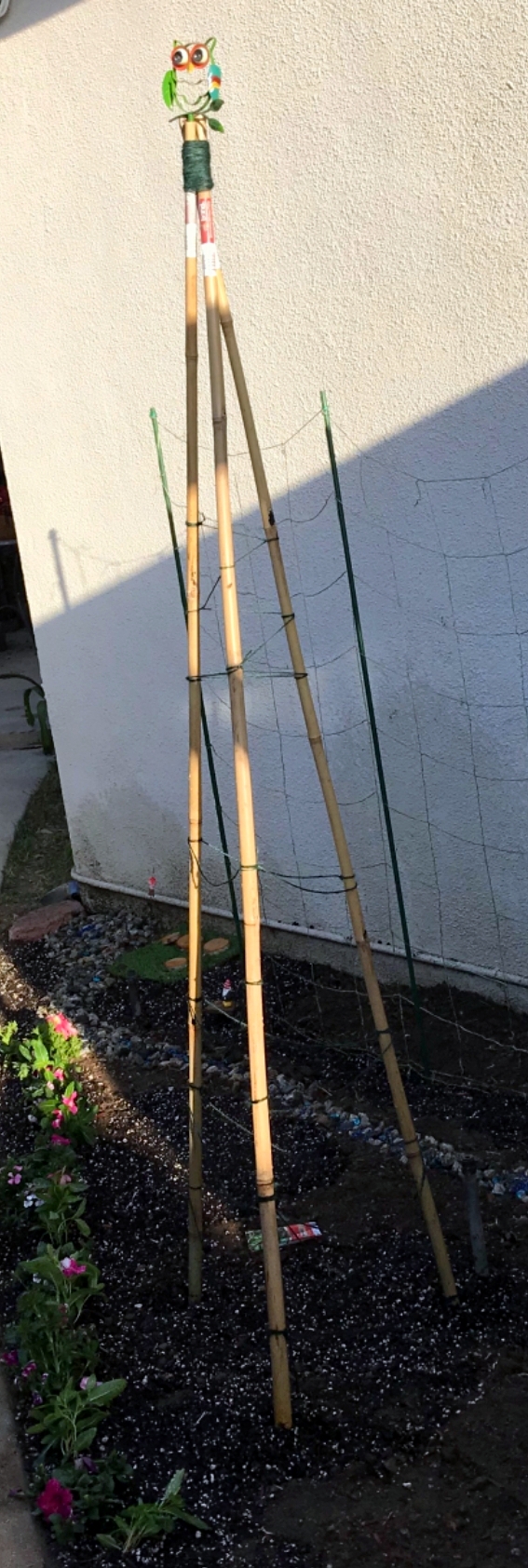
In my never-ending quest to best use all of the little space, I’m planning on using these guys everywhere!
Annie & I included a garden “tee-pee” for peas and beans to climb. It’s another great way to “grow up,” especially in smallish spaces. Three easy samples here:
How to Make A Bamboo Tepee in a Minute
Kids Gardening: Build a Bean Teepee
How To Make An Easy DIY Bean Teepee
And a final nod to the butterflies. Plant Milkweed! If you only plant one plant, plant Milkweed! The Monarchs will thank you!
Project Milkweed and the Xerces Society’s new Managing Monarchs in the West are a great place to start.
